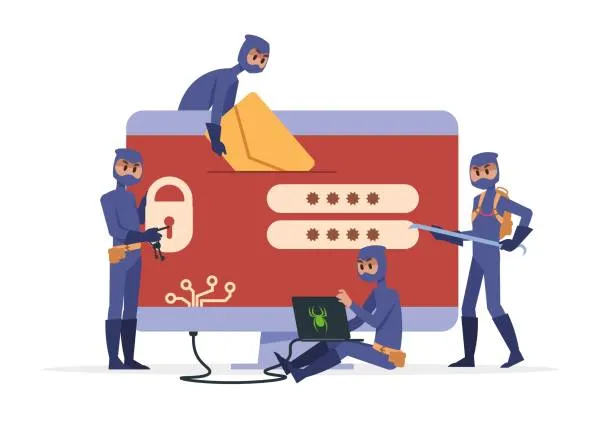Recently, we’ve seen Which Incident Type is Limited To One Operational Period Type 4.
Incident types provide a way to categorize and track incidents so that they can be tracked and analyzed.
They also make it easier for organizations to understand how their systems are working and to make changes as needed.
What is An Incident Type?
An incident type is a specific type of event that can only happen once during an operational period.

Incident types help to manage and track the progress of your incident response plan.
They also provide a way to compare and contrast different types of incidents and how best to respond to them.
Incident Type
Incident type refers to the specific circumstances under which a data breach occurred.
There Are Three Types of Incidents: System, Human, and Cyber.
1. System incidents are those that affect the systems that run your business,
2. While human incidents are those that involve employees or customers accessing your data.
3. Cyber incidents cover any malicious attack on your corporate network, whether it is conducted by a third party or by an employee themselves.
What is Incident Type 4?
Incident type refers to a limitation in the number of operational Tesla cars at any given time.

This limitation is due to the fact that Tesla’s lithium-ion batteries are not designed to be used repeatedly in a short period of time.
- Tesla’s battery packs are designed to last between 500 and 1,000 miles before they need to be recharged.
- However, if you attempt to drive your Tesla car more than 1,000 miles in a single day, the battery will become damaged.
- This is why Tesla only allows you to operate one Tesla car at a time. If you try to drive another Tesla car, the first Tesla car will become unavailable.
What is The Incident Operational Period?
Every incident is limited to one operational period. This means that you can only have one incident open at a time and you cannot reopen an old incident.
Which Incident Type is Limited To One Operational Period?
The Answer is: Type 4
❹
Type 4
When it comes to emergency response, there is no such thing as a small incident.
| ◎ | In fact, most emergency calls are actually big incidents – something that first responders and commanders know all too well. |
| ◎ | But even when a call is classified as a “big” emergency, there is still often a need for multiple units to work together in order to respond effectively. |
| ◎ | This is why some agencies have developed strict policies dictating how many times an officer or firefighter can be involved in an operational incident during any given period of time. |
| ◎ | The Los Angeles County Fire Department (LACoFD), for example, limits its officers and firefighters to participate in only one operational incident per calendar month. |
| ◎ | While This policy may seem limited at first, it has proven to be an effective way of ensuring that each responding unit is fully utilized and that everyone is working towards the same goal. |
| ◎ | By limiting the number of operational incidents an officer or firefighter can be involved in, LACoFD is able to ensure that each individual’s skills are put to use. |
| ◎ | This allows for more streamlined response times and improved coordination between units. |
Incident Type: Attack
Incident type is the most important factor when selecting an incident response plan.

- A plan must be tailored to the specific incident.
- Each type of incident has its own unique requirements and procedures.
- This article discusses the three most common types of incidents: attack, compliance, and security incident.
Incident Type: Ransomware
Ransomware is a type of malware that encrypts a user’s files until a ransom is paid.
Ransomware has become increasingly common, and organizations need to take steps to protect themselves from it.
Incident Type: Data Leak
An incident type limited to one operational period can have many different potential causes.

In some cases, the root cause may be simple human error.
More serious incidents may involve cyberattacks or data breaches that compromise the privacy of individuals or organizations.
Incident Type: Malicious Code
Malicious code incidents are limited to one operational period.
This means that an organization can only experience one malicious code incident in a given time period.
Incident Type: bad debt
A company may be limited to one incident type which is bad debt.
This could include a situation in which a customer does not pay their bill or a situation in which the company has to declare bankruptcy because of debts it has incurred.
Incident Duration
Incident duration is typically limited to one operational period.
- This means that an incident can only be active for a certain period of time before it must be resolved and closed.
- This helps to ensure that incidents are properly managed and that resources are not unnecessarily wasted on unresolved incidents.
Incident Severity
Incident severity is limited to one operational period. This means that an organization can only experience one incident of a given severity during a defined period of time.

This can be helpful in understanding and managing incidents more effectively.
Incident Frequency
Incident types are limited to one operational period. This means that an incident cannot be reopened and have another incident type assigned to it.
If an incident is reopened, the new incident type will be assigned.
Incident Context
One incident per operational period is the rule of thumb for most organizations.
However, this limitation can be circumvented in a few specific cases.
| ⦾ | For example, if a cyber security incident involves an organization’s website and it is determined that the website will be down for more than three hours during the same business day, then an incident would be counted as two incidents. |
| ⦾ | Additionally, if a cyber security incident involves the compromise of Personally Identifiable Information (PII) or financial data and it is determined that the data will be used to commit fraud or cause significant economic harm, then an incident would be counted as three incidents. |
FAQ {Frequently Asked Question}
What is The Incident Operational Period?
Every incident is limited to one operational period. This means that you can only have one incident open at a time and you cannot reopen an old incident.
What is Incident Type 4?
This limitation is due to the fact that Tesla's lithium-ion batteries are not designed to be used repeatedly in a short period of time.
- Tesla's battery packs are designed to last between 500 and 1,000 miles before they need to be recharged.
- However, if you attempt to drive your Tesla car more than 1,000 miles in a single day, the battery will become damaged.
- This is why Tesla only allows you to operate one Tesla car at a time. If you try to drive another Tesla car, the first Tesla car will become unavailable.
What is The Incident Operational Period?
Every incident is limited to one operational period. This means that you can only have one incident open at a time and you cannot reopen an old incident.
1 Related Term
- Management is Said To Be The Combination of: The Complete Factor
- Why is The issue of Sustainability Important For Development?
- For What Purpose is Distomat Used
- Who Generally Facilitates The Operational Period Brief?
- What Describes The Current Cloud Landscape For Business?
- What is TCS Process For Business Continuity Management?
- Imagery And Repetition Are Aspects of What?
- Which Factor Does Not Impact The Complexity of An incident?
- How Can Google Ads Help You Advance Your Business Goals?
- What’s The Biggest Challenge For Most Businesses When Going Online?
- As Accenture Explores An End To End Business
- Which of The Following is Not A Self Management Skill?
- What Does Configuration Management Enables Traceability?
- Which NIMs Structure Makes Cooperative Multi Agency Decisions?
- Effective Hazard Management Largely Rely on
- What is international Marketing Communication?
- Why is Goal Setting Important To Inbound Marketing?
- How To Start A Packaging Business?
- What Change Brought international Leaders To South Africa?
- Where Can You Find TCS Process For Business Continuity Management?
- How often Should Management Accounting Reports Be Prepared?
2 Conclusion of Which Incident Type is Limited To One Operational Period
Incident types are limited to one operational period in order to prevent overlap.
‣ I hope friends, through this article, I have given you information about Which Incident Type is Limited To One Operational Period, You must have got the information. So share your suggestions with us.
















